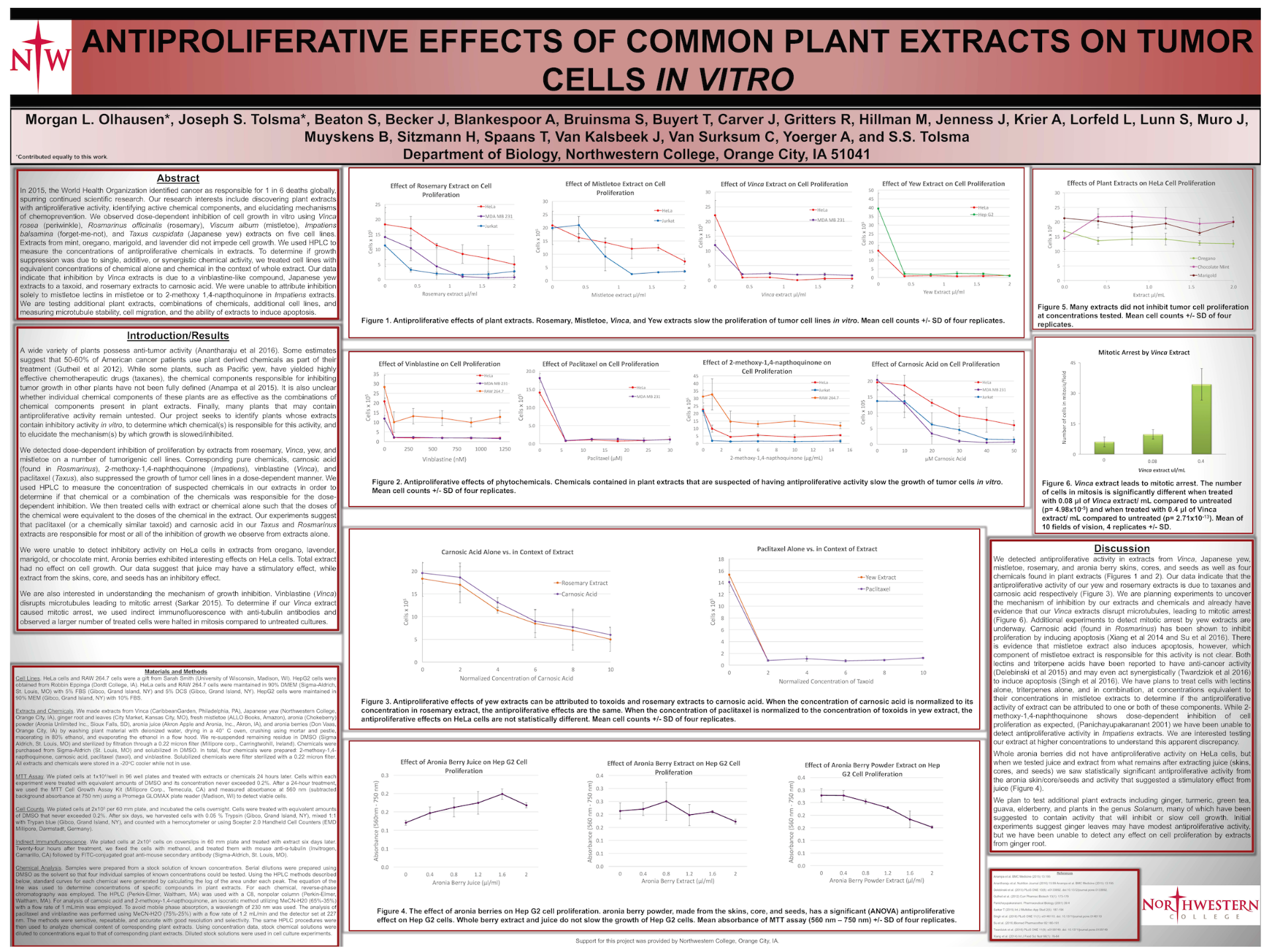Antiproliferative Effects of Common Plant Extracts on Tumor Cells in vitro
Morgan L. Olhausen*, Joseph S. Tolsma*, Beaton S, Becker J, Blankespoor A, Bruinsma S, Buyert T, Carver J, Gritters R, Hillman M, Jenness J, Krier A, Lorfeld L, Lunn S, Muro J, Muyskens B, Sitzmann H, Spaans T, Van Kalsbeek J, Van Surksum C, Yoerger A, and S.S. Tolsma
Mentors: Dr. Sara Tolsma
Department of Biology

In 2015, the World Health Organization identified cancer as responsible for 1 in 6 deaths globally, spurring continued scientific research. Our research interests include discovering plant extracts with antiproliferative activity, identifying active chemical components, and elucidating mechanisms of chemoprevention. We observed dose-dependent inhibition of cell growth in vitro using extracts on five cell lines from the following plants: Vinca rosea (periwinkle), Rosmarinus officinalis (rosemary), Viscum album (mistletoe), Impatiens balsamina (forget-me-not), and Taxus cuspidata (Japanese yew). Extracts from mint, oregano, marigold, and lavender did not impede cell growth. We used HPLC to measure the concentrations of antiproliferative chemicals in extracts. To determine if growth suppression was due to single, additive, or synergistic chemical activity, we treated cell lines with equivalent concentrations of chemical alone and chemical in the context of whole extract. Our data indicate that inhibition by Vinca extracts is due to a vinblastine-like compound, Japanese yew extracts to a taxoid, and rosemary extracts to carnosic acid. We were unable to attribute inhibition solely to mistletoe lectins in mistletoe or to 2-methoxy 1,4-napthoquinone in Impatiens extracts. We are testing additional plant extracts, combinations of chemicals, additional cell lines, and measuring microtubule stability, cell migration, and the ability of extracts to induce apoptosis.
